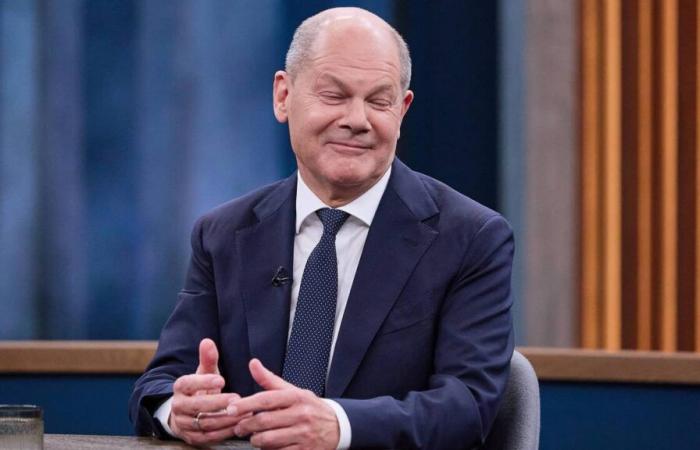German Chancellor Olaf Scholz has said he is ready, under conditions, to submit this year to a vote of confidence by deputies with a view to accelerating the organization of early legislative elections following the breakdown of his government coalition.
“It is not a problem for me to ask the question of confidence before Christmas” in the Bundestag, if the ruling Social Democratic Party and the conservative opposition agree on this, Olaf Scholz said on Sunday in an interview on public television ARD. On Wednesday, he mentioned the date of January 15 to raise the question of confidence with legislative elections at the end of March. “I also want this to go quickly,” he said. “Germany urgently needs a new, democratically legitimized government,” he added.
After the vote of confidence, which Chancellor Scholz is expected to lose, no longer having a sufficient majority in parliament, President Frank-Walter Steinmeier will have 21 days to dissolve the Bundestag and new elections must take place within 60 days.
The pressure is building
Since the explosion on Wednesday of the government coalition initially formed by Olaf Scholz’s social democrats, environmentalists and liberals, due to deep disagreements over economic policy, pressure has been mounting on the chancellor to quickly organize elections. .
Calls have multiplied for the legislative elections to be held as soon as possible, while the challenges are numerous for the largest European economy, on the verge of recession and which fears the consequences of a return of Donald Trump at the head of the States -United.
In an interview with the weekly Stern, the Conservative candidate for chancellor, Friedrich Merz, called on Olaf Scholz to seek a vote of confidence on Wednesday, the day the chancellor planned to make a government declaration in the Bundestag. Friedrich Merz also called for elections on January 19, while his party is leading in the polls. He has made a rapid vote of confidence in the Bundestag a prerequisite for his party to provide support for a series of important bills, which the chancellor’s government wants to pass through parliament before the elections.
On Monday, the federal director of elections, Ruth Brand, is due to hold a virtual meeting with her regional colleagues, with the aim of studying the organization of the vote. According to a poll published Sunday in the German weekly Picture on Sunday carried out by the Insa institute, the conservatives remain the largest political force with an unchanged score of 32%, followed by the far-right AfD at 19%. Scholz’s SPD comes in behind at 15%. The two other members of Olaf Scholz’s ex-coalition are credited with 10% for the Greens and 4% for the Liberals, i.e. below the threshold of 5% necessary to remain in the Bundestag.






